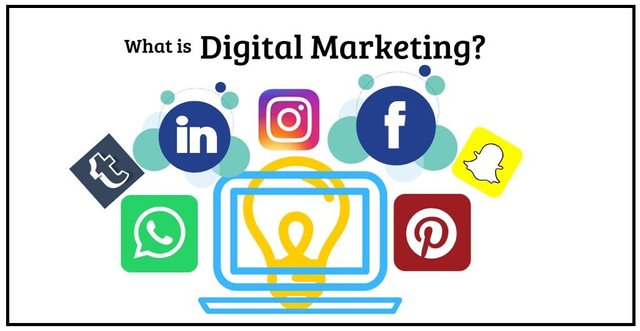
Digital marketing refers to the use of digital channels and technologies to promote products, services, or brands. With the rise of the internet and the increasing use of smartphones, digital marketing has become a crucial component of any business strategy. This guide explores the key elements, benefits, and challenges of digital marketing.
Key Elements of Digital Marketing
Search Engine Optimization (SEO)
SEO is the process of optimizing a website to improve its visibility on search engines like Google. This involves using relevant keywords, creating high-quality content, and improving site structure to attract organic traffic.Content Marketing
Content marketing focuses on creating valuable, relevant content to attract and engage a target audience. This can include blog posts, videos, infographics, and podcasts that inform or entertain.Social Media Marketing
Social media marketing involves promoting products or services on platforms like Facebook, Instagram, Twitter, and LinkedIn. It allows businesses to engage with their audience, build brand awareness, and drive traffic to their websites.Email Marketing
Email marketing involves sending targeted messages to a list of subscribers. This can include newsletters, promotions, and personalized offers, making it a powerful tool for nurturing leads and retaining customers.Pay-Per-Click (PPC) Advertising
PPC is a form of online advertising where businesses pay a fee each time their ad is clicked. Platforms like Google Ads and Facebook Ads allow businesses to target specific audiences and measure the effectiveness of their campaigns.Affiliate Marketing
In affiliate marketing, businesses partner with affiliates who promote their products in exchange for a commission on sales. This strategy can expand reach and increase sales without upfront costs.
Benefits of Digital Marketing
Global Reach: Digital marketing allows businesses to reach a global audience, breaking geographical barriers.
Cost-Effective: Compared to traditional marketing, digital marketing often offers lower costs and higher ROI.
Targeted Advertising: Businesses can target specific demographics, interests, and behaviors, ensuring their message reaches the right audience.
Real-Time Analytics: Digital marketing provides real-time data on campaign performance, enabling businesses to make informed decisions and adjustments quickly.
Engagement: Digital marketing facilitates direct interaction with customers, allowing businesses to build relationships and gather feedback.
Challenges of Digital Marketing
Constantly Evolving: The digital landscape is always changing, requiring marketers to stay updated on trends and technologies.
High Competition: As more businesses move online, standing out from the competition becomes increasingly challenging.
Data Privacy: With increasing concerns about data privacy and regulations, businesses must navigate compliance while still effectively reaching their audience.
Content Overload: The sheer volume of content available online can make it difficult for businesses to capture and retain audience attention.
Conclusion
Digital marketing is an essential aspect of modern business strategies, offering numerous opportunities to connect with audiences and drive growth. By understanding its key elements and benefits, businesses can develop effective digital marketing campaigns that enhance their online presence and achieve their goals. As technology continues to advance, embracing digital marketing will be crucial for staying competitive in an ever-changing marketplace.